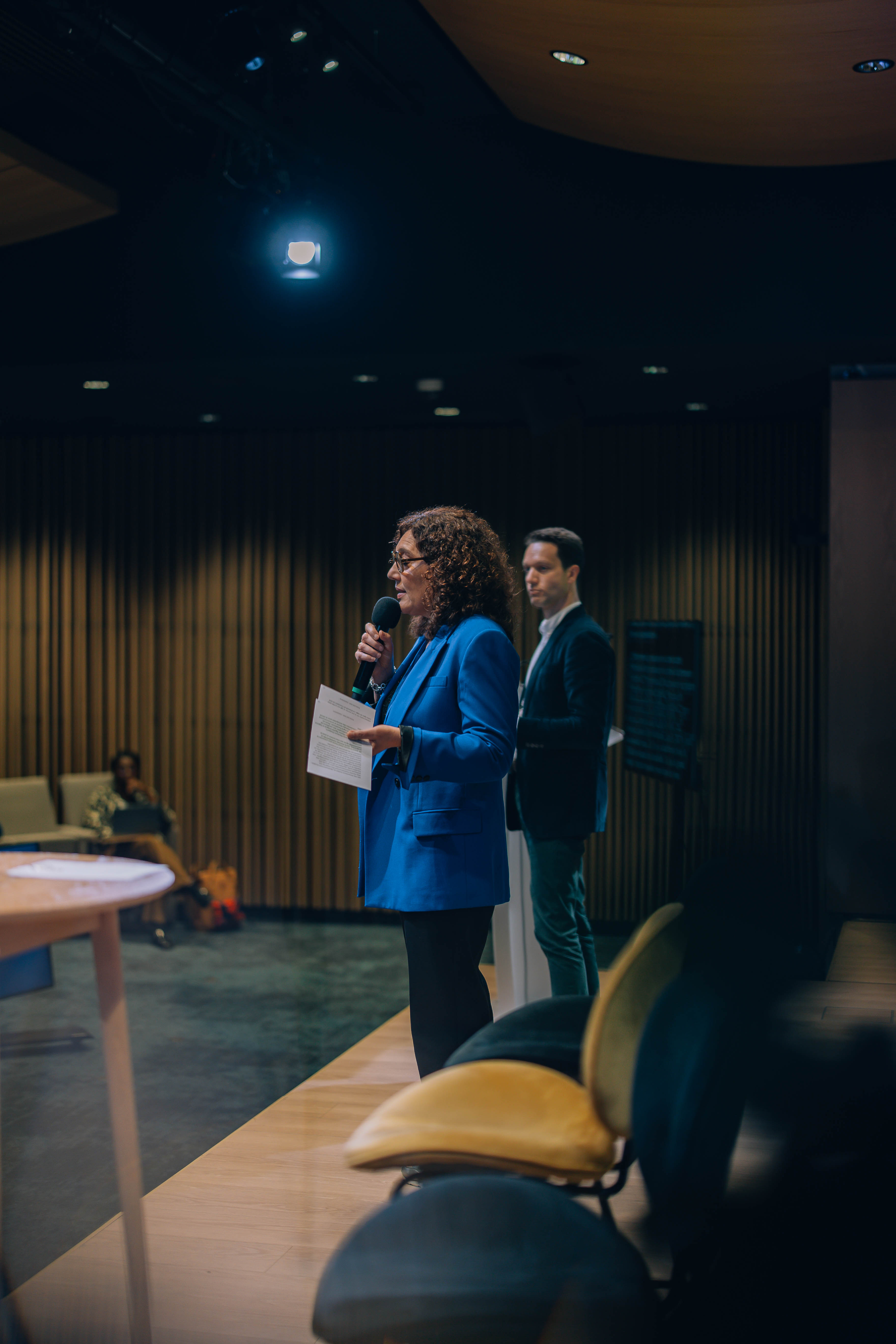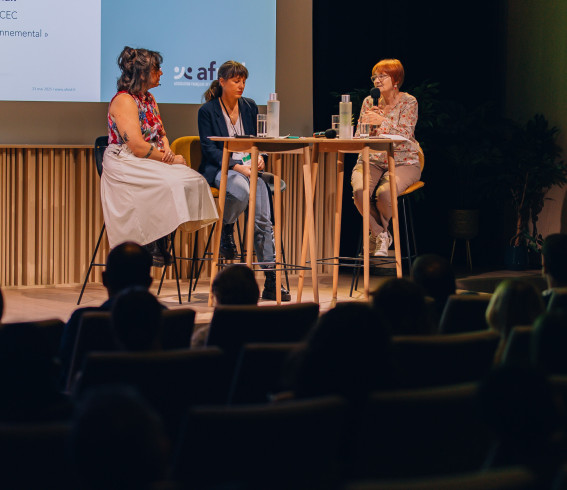In the face of the ecological emergency and growing social inequalities, one thing is clear: the transition can be neither effective nor fair without a joint approach to environmental and social policies.
How can we address these challenges? On May 23, 2025, during its General Assembly, AFMD invited two experts to explore this question:
- Florence Chappert, Head of the Gender Mainstreaming Mission at the French National Agency for the Improvement of Working Conditions (ANACT)
- Ingrid Kandelman, Coordinator of the Social and Environmental Dialogue programme for the Convention of Companies for the Climate (CEC)
The importance of intersecting social and environmental policies
The conclusion is clear: the effects of climate change compound and exacerbate existing inequalities—whether social, economic, or gender-based. Florence Chappert referenced findings from the CESE report on gender inequalities, the climate crisis, and the ecological transition, highlighting that although women make up nearly half of the workforce, they represent only 27% of so-called “green” jobs, which tend to be more male-dominated sectors such as construction, energy, transport, and agriculture.
But beyond gender, precarity lies at the heart of the issue. Ingrid Kandelman emphasized that the most vulnerable are the hardest hit by the climate crisis, despite being the least responsible for it—including precarious workers, children, and minority groups. These inequalities are also evident in the work world: employees exposed to heat or deteriorating working conditions (in sectors like construction and agriculture) are often those least represented in decision-making processes.
This is why linking social dialogue with the ecological transition is crucial: imagining environmental transformations without involving workers means overlooking a key part of both the problem—and the solutions.

The notion of care : a cornerstone of a just transition
Another key theme of the discussion was the notion of care, understood as a way of approaching the ecological transition through the lens of attention to all living beings—both human and non-human.
“Caring” means, among other things, anticipating and addressing the new occupational risks brought about by ecological changes. Florence Chappert pointed out that these risks are far from neutral—they are gendered. Sectors such as hairdressing, beauty, or personal care—predominantly female-dominated—are being assigned new tasks (waste sorting, disinfection, adapting to “green” standards) that are often unrecognized or unaccounted for in existing workloads.
Moreover, responses to climate crises (like heatwaves or floods) are not always designed with frontline work realities in mind. Between increased workloads, lack of adequate equipment, and ill-suited solutions such as remote work or shifted schedules, employees may face a sudden and unplanned intensification of their duties.
For the ecological transition to be truly inclusive, it must start from these lived experiences: acknowledge the risks, adapt protections, recognize care professions as essential, and never lose sight of the fact that caring for the climate also means caring for those who bear its daily impacts.
Rethink the work models of tomorrow
A key takeaway from the discussions was this: the ecological transition is not just a technical adjustment—it requires a deep transformation of how we work, produce, and govern.
The speakers pointed out a critical gap: while companies are increasingly publishing CSR reports and sustainability strategies, real changes in day-to-day work practices are still lagging behind. It’s not just about transforming jobs—it’s about questioning the very structure of work itself: its purpose, goals, pace, and governance.
Ingrid Kandelman cited the emblematic case of dieselgate, where organizational pressures led engineers to falsify data. She reminded the audience that the tensions between economic, ecological, and human objectives cannot be resolved without spaces for collective dialogue.

It also calls for a paradigm shift. Drawing on the work of Alain Supiot and Olivier Hamant, the discussion pointed toward a new future rooted in the living world: organizations inspired by resilient and adaptable ecosystems, where diversity, repitition (rather than hyper-optimization), and cooperation become foundational principles.
This shift also requires deconstructing power dynamics—especially those linked to gender—and revaluing invisible or unpaid forms of work, as emphasized in eco-feminist approaches.
Anticipate, include, transform
The ecological transition cannot succeed without anticipation, inclusion, and a deep transformation of work organizations. Environmental and social policies must be designed together, with constant attention to inequalities and the concrete realities of work.
The discussions closed with a powerful message: the challenge of 2025 is not only to reduce emissions, but to build a society capable of caring for its people while respecting the planet. This will require work models that are resilient, fair, and deeply human.



